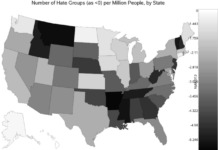
The man with a camera began to photograph my daughter when she was six as we enjoyed an open-air café meal. It was extremely disconcerting for both of us. Rather than interact with the intruder, I asked the waiter to make the guy leave. Although he took off, what had been a special mother-daughter day was marred.
Yet not all photographers are “pedophiles with cameras.” They are just photographers. David Updike is a Harvard-educated photographer and writer caught in this web of fear (not that a Harvard education prevents people from being pedophiles). When Updike was sitting upon a bench in a Cambridge, Mass. park in September, he suddenly found himself encircled by the police. He was accused of pedophilia; police officer after police officer bombarded the innocent man with questions. Apparently, a woman reported him “taking pictures of children,” with sexual abuse implied.
Unsettled by the experience, Updike decided to write an open letter to the “woman in Dana Park who called the police on September 23rd around 5:30 p.m.” This is his letter, first published by the Cambridge Chronicle & Tab:
Dear Neighbor,
Yesterday was a beautiful day, I think you will agree. I decided to take a short walk from my house on Hamilton Street to Dana Park, which I have been coming to almost daily since 1989, the year my son was born. As I often do, I brought my camera, sat on a bench for about 10 minutes, did one lap around the park and headed home.
I had barely gotten across the street when three police cars pulled up: I was told to stop, and swiftly surrounded by six policemen. I was “detained” there for approximately 20 minutes and questioned; another officer returned to the park to find out why you had called them.
My suspected crime, apparently, was having a camera in a public park, and allegedly taking pictures of children. As it turned out, I had taken no pictures that day. But I have been photographing in this neighborhood for 30 years, and have published a children’s book of poems and photographs, always with permission.
The policeman returned and wanted to see my “flip phone,” and then asked me if I knew how he knew I had a flip phone: I didn’t. He knew, he told me, because the woman who called the police had taken a picture of ME, sitting on the bench, and shown him the picture. They then took away my phone, scrolled through the few pictures that were on it.
They continued to hover around me asking questions. As it happened, I was standing near the house where my son now lives, and when my wife appeared, walking down the street after work, and saw me standing in front of his house with six policemen, she instantly feared something terrible had happened to our son. She was shaking, and I explained the situation. She is an English teacher at Cambridge Rindge and Latin School; I am a college professor of English. Our son spent much of the first 15 years of his life in Dana Park.
You must be new in the neighborhood. I am often in the park, on foot or on a bike, talking to friends who have children who play in the playground. I know you were standing very near to me for the entire time I was on the bench, though I could not figure out why. Now I know: you were taking my picture.
Suggestion: the next time you suspect someone is up to no good, perhaps you should say hello, speak to them first and, if still anxious, ask what they are taking pictures of. That’s what people do in a neighborhood park: talk to each other. This would save someone the humiliation and degradation of being stopped and held by the police, and might save the police from wasting their time when they could be doing something more useful, like managing the daily mayhem in Central Square.
The fact that you now have my picture in your phone is both sadly ironic and, well, creepy. Could you please delete it?
Your neighbor,
— David Updike, Hamilton Street
Updike commented on the Cambridge Chronicle & Tab’s Facebook page, reiterating that he had a film camera, and he didn’t take any photographs in the park. He was simply pausing to enjoy a fall day. The photographer wrote: “…their looking in my cell phone is illegal, as would be taking my film,” Updike writes, “Sitting on a bench in a public park… a crime?”
A good friend of mine teaches photography. Here is his take on the issue:
“I have had some encounters with that situation. The law provides that anyone in a public place cannot assume or expect privacy, thereby allowing anyone (i.e. photographers) to take pictures of people at will. Given people’s generalized desire to protect children, and their overreaction based on limited knowledge, you wind up with a vigilante pervert patrol/mob. When the photographer is standing in the open with expensive equipment you can almost assume non-pervert status. The best thing the photographer can do is to quietly leave.”
Who was at fault? Was it the police or an overly vigilant woman or was it a case of guilty until proven innocent?




